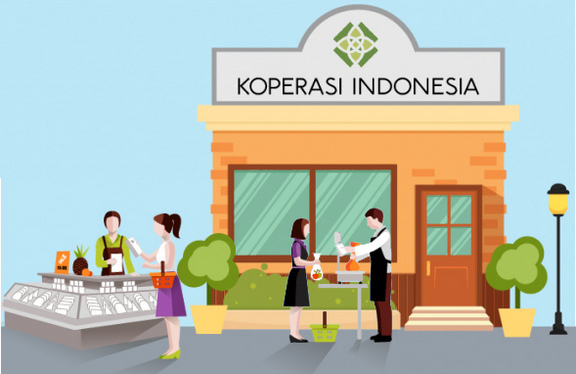The United Nations (UN) has launched Sustainable Development Goals (SDGs) as a global agenda for the continuation of the Millennium Development Goals (MDGs). There are 18 SDGs, including life without poverty, without hunger, good health and welfare, quality education, and gender equality. One of the Indonesian government’s strategies to support the SDGs is to empower cooperatives and microfinance institutions in rural areas.
One form of support from the East Java Provincial Government for the development of micro-enterprises and cooperatives is by providing grants to women’s cooperatives. Women’s cooperatives are cooperatives whose members and management are women. Women are expected to contribute to improve the family income and overcome financial problems by meeting their daily needs (Trivendi et al. 2011). It is expected to improve family welfare (Seng 2018).
One of the women’s cooperative’s activity in rural areas is saving and loan service, especially for women from low-income families, that are jointly managed and mutually beneficial. The government issued Minister of Cooperatives and Small and Medium Enterprises Regulation of the Republic of Indonesia Number 02 / Per. / M.KUKM / II / 2017 regarding changes to the previous regulation concerning savings and loans. This arrangement is in line with Article 33 of the 1945 Constitution.
Cooperatives provide benefits for women to contribute to improving their families’ life. Several studies have shown that women’s cooperatives help their members to meet their social needs, improve their welfare, and businesses (Mujanah et al, 2019). Women’s cooperatives can also provide support in developing rural economies and support family welfare (Sungkawati & Suarniati 2015, Widiyanti et al. 2018, Sungkawati et al. 2018). For this reason, a research was conducted on the impact of women’s cooperatives in supporting the achievement of the SDGs in rural areas.
Research methods
The research was conducted using qualitative data collection methods in two women’s cooperatives, Karya Pertiwi women’s cooperative in Kepoh Agung Village and Barokah women’s cooperative in Magersari Village, Tuban Regency. The two women’s cooperatives were deemed successful, and each of these cooperatives received a grant of IDR 50,000,000 from the East Java Provincial government over two periods. Despite receiving the same grant, the two cooperatives developed differently.
Results and conclusions
The Karya Pertiwi women’s cooperative in Kepoh Agung Village, Plumpang Sub-district, Tuban Regency was established in 2010 with a business license Number 041 / BH / XVI.28 / 414.055 / 2010. The initial capital for the cooperative was a grant from the East Java Provincial Government. In 2013, the cooperative received an addition capital because it was considered successful by the Tuban Cooperative Office. Apart from grants, venture capital comes from principal savings, mandatory monthly savings, and monthly voluntary savings. Requirements to become a member of a cooperative include photocopies of ID cards (KTP), principal saving, mandatory savings, and voluntary savings.
Both women’s cooperatives founded in 2010 have grown differently in terms of capital, income and membership. The Karya Pertiwi Cooperative has better capital growth compared to the Barokah Cooperative. It is indicated by a) increasing number of Karya Pertiwi members. The size of the members affects the capital obtained from principal savings and mandatory savings; b) Barokah Cooperative did not develop very well at first because initially the capital was used by one of the managers, so the cooperative did not operate properly and affecting the amount of working capital and income the cooperative earned. Women’s cooperatives provide loans at a lower interest rate compared to private rural lenders and the installment period is negotiable. They provide benefits to low income women in both villages, even though there were late installment payments that could disrupt the cooperative’s growth.
The existence of women’s cooperatives in rural areas is a) encouraging economic activities in rural areas, b) encouraging participation in formal education among low-income families, c) strengthening the social capital of the rural population. All of this can support the achievement of the SDGs. However, some members of the village community still have contact with moneylenders in the village. Therefore, village cooperatives need further support and development in terms of quality and quantity so the SDGs can be achieved more comprehensively. The study recommends that the cooperative management should continue to build trust of its members in managing the cooperative so it can run well. The cooperatives can increase social capital among poor rural families to improve welfare and education.
Author: Rustinsyah
Details on the research can be viewed here:





